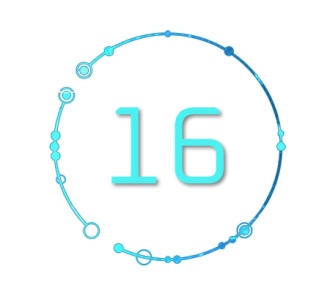

Lake
“I expected you this morning.” Sophie’s cigarette smoke writes exclamation marks in the air.
She’s working on an ultra-thin laptop, which clashes with her eighties persona. Then, I notice the state-of-the-art lab equipment. Already, things are improving from our first dream session.
“Sorry. I was debriefing with Dr. Deborah Duvaney.” She divulged that they’d been close. I look at Sophie expectantly, hoping her friend’s name triggers her memories.
A line forms between Sophie’s thick eyebrows.
I hold my breath in anticipation.
Sophie taps the cigarette over an ashtray. “I’d appreciate more consideration on her part. Please inform her I run on a strict schedule, and I need you here on time.”
“Did I mention I’m from Pittsburgh? I won The American Chemistry Club’s award twice, and—”
“I don’t mean to sound rude, but your tardiness has already put us behind.”
“Dr. Weiss, do I look at all familiar to you?”
“Why? Have we met before yesterday?”
“Not technically, but—”
“Then how would I know you?” She starts rubbing her temples, and beads of sweat form above her lip.
As much as I want to reveal the truth, all indications suggest Sophie isn’t ready to accept the reality of our situation. For both of our sakes, I have to grant her the time she needs to come to terms with her new life. Otherwise, there’s the possibility the woman living in my brain could become insane.
“Is there an extra laptop I can use to take notes?” I ask.
“What’s a laptop?”
I turn to where hers had just been. In its place is a boxy, tan monitor with a green screen, which only confirms I need to take it slow. Patience, unfortunately, has never been one of my virtues. “I’ll use this.” I grab a pad of lined paper and a pen off her desk while furtively checking out what else she may have changed.
She reverted the lab equipment back to its archaic form, and a huge tank filled with live octopuses is on a counter. The cephalopods are different colors, and their arms move like fingers across the sand at the bottom. The items that were hanging on three of the walls appear the same, but there’s a new picture on the fourth. It’s of a tranquil lake with two white swans gliding across the water. I head over to take a closer look and read the poem.
Because I could not stop for Death -
He kindly stopped for me -
The carriage held but just ourselves -
And Immortality.
Not the inspiration one would expect to find in a neuroscientist’s lab. But it wouldn’t be out of place in a secret research complex whose mission is to curtail death. The Nobels Program is providing Sophie with a second life, and when my body wears out, it’s feasible that her consciousness can be reinserted into another sixteen-year-old, mimicking immortality. Is she starting to remember?
“Dr. Weiss, what is this?”
She glances up with a perplexed look and comes over. “It’s the first part of an Emily Dickenson poem. I wonder who put it there.” She reaches into her lab coat’s pocket, pulls out a pack of cigarettes, lights one, and draws in a deep breath. She studies the picture while polluting the air with bitter-smelling smoke. “I think I’ll keep it here for the time being. Now, please prepare tissue samples from the specimens in the cooler.”
I’m considering the presence of the poem as progress. It’s only a matter of time before Sophie accepts that she’s merged with me. I approach the cooler with a new bounce to my step, open the stainless steel door, and gasp. On the metal shelf are six gray, slimy brains. Human brains.
“If working with acute slices is going to be a problem, there’s a long line of students who would be happy to take your place,” Sophie says.
Her threat reminds me where I am. These are dream-brains. Once I get accustomed to doing it in our dream sessions, dissecting real human brains will be a cinch. “Sorry, Dr. Weiss. That was unprofessional. It won’t happen again.”
She appraises me until even I’m questioning if I deserve this fake position. She finally releases me from her scrutiny and takes a deep pull from her cigarette. Thankfully, I can’t get lung cancer from second-hand dream-smoke.
“Brain slices maintain many aspects of in vivo biology, including functional synaptic circuitry,” Sophie explains. “This makes them ideal platforms for dissection, letting us witness the development and degradation of the molecular pathways and real-time neuronal dysfunction.”
“So, you’re saying they’re still alive outside of their body.”
I wait for her to make the connection to her own existence.
“Not precisely, but brain slices do behave as if they are part of a living organ for six to twelve hours post-removal. Three slides per sample.” She starts heading back to her desk. “Please.”
“Do you mind showing me how to prepare them?”
“I would expect a graduate student to understand basic research techniques.” She leaves me and sits in front of what was considered a modern computer in the 1980s.
Until Sophie understands who I am, I can only do my best. Besides, I’m not going to ruin the integrity of her research. We’re in a dream. I search through drawers and find a box of latex gloves and a scalpel. After gloving up, I gingerly pick up one of the brains, set it on the counter, and begin to mouth-breathe to overcome its dead organ smell.
I inspect the human brain to determine where to cut first, and …

I blink a few times, clearing the sleep from my eyes before turning to the clock on the night stand. It felt like we’d only been working three or four hours, but my “afternoon nap” lasted for seven, confirming that time is altered in the dreamstate. I stretch with pleasure. Facing the risks to become the Nobel for Chemistry was inconsequential compared to the benefits. People my age would never have the opportunity to learn how to prepare brain tissue samples from an esteemed neurologist. Admittedly, we had a slight issue when she noticed the scalpel in my hand. I’m not a grad student. How am I expected to know to use a microtone to slice brains?
I’m supposed to inform the Darwinians about everything that occurs in the dreamspace. I should probably tell them the truth about Sophie, but I’m observing moments when it appears she’s figuring it out. And it’s not preventing her from teaching me what I need to know to become an accomplished researcher. As long as we’re progressing, I don’t see the harm in giving her more time.